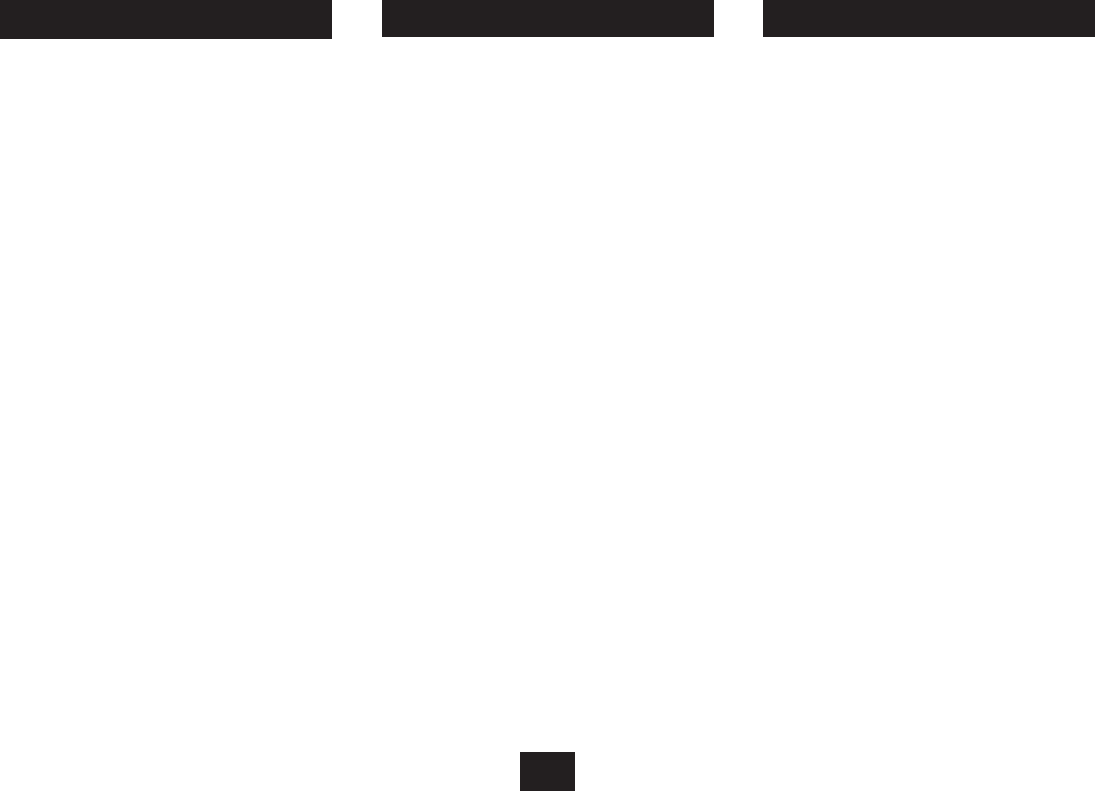
2
INDEX
INDEX
Introduction ............................................................2
Unpacking ...............................................................2
Controls & connections ............................................3
Display features .......................................................4
Connecting power ...................................................5
Getting started ........................................................5
DAB Station tuning ..................................................5
FM reception ............................................................6
Presets .....................................................................6
Alarm functions .......................................................7
Sleep mode..............................................................8
Scanning .................................................................8
Manual tuning .........................................................8
Display modes .........................................................9
System reset ..........................................................10
Care & Maintenance...............................................10
Specications ........................................................10
Warranty ...............................................................10
PRELIMINARIES INTRODUCTION
Introduction
DAB (Digital Audio Broadcasting) technology allows many
more radio stations compared to FM. DAB transmissions do
away with problems of hiss and fade that plague AM and
FM broadcasts and are less likely to be aected by adverse
weather conditions or other sources of interference. In
addition to speech and music DAB transmissions carry high
levels of data - far greater than the limited RDS information
available on FM stations.
Unlike FM, DAB is broadcast on many frequencies. Many
countries in Europe, including the UK use Band III (174-230
MHz); others, France for example, use the L-Band (1452-
1492 MHz). Germany uses both bands.
Your radio can tune Band III. Countries in Europe that use
Band III include: Belgium, Denmark, Holland, Italy, Norway,
Portugal, Spain, Sweden, Switzerland. Your radio will tune
stations in all these countries.
Your radio cannot receive French or German stations
broadcasting in the L-Band though FM services are available
all over Europe.
Being digital, DAB transmissions can have a wider frequency
range and greater dynamics than that available with FM
technology.
FM reception is available on the DAB-109 for use in those
locations where there is no usable DAB service.
A headphone output is provided for personal listening.
UNPACKING
Carefully unpack the unit. If it is damaged, please return it to
your nearest Tesco store for replacement. Remember to take
your purchase receipt with you.
Retain the User Handbook. If you pass the unit on to a third
party make sure you pass on the handbook.
We suggest you retain the packaging. If you dispose of it, do
so having regard to any recycling regulations in your area.
CONTENTS
The carton should contain:
The DAB-109CRF DAB Digital radio alarm clock•
Operating Manual•
If any items are missing or damaged, contact your nearest
TESCO store for a replacement. Have your receipt ready when
you call. Retain the packaging. If you dispose of it, do so
having regard to any recycling regulations in your area.
LOCATION
Place the unit on dry stable surface away from heat and
damp and where it is unlikely to fall or be knocked over.


















